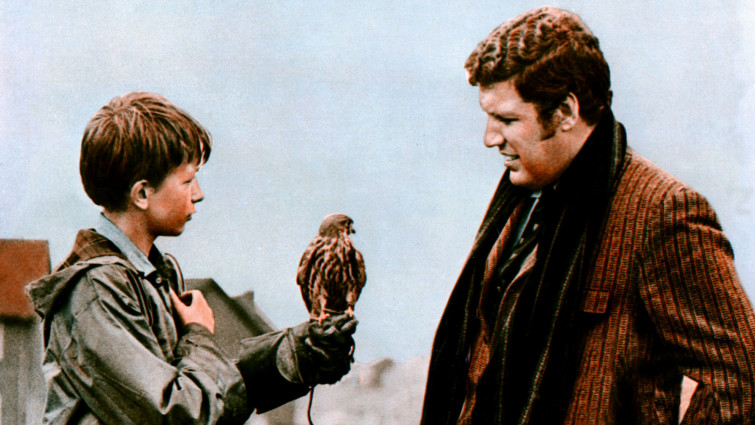

Member review

Kes
Enchanting film from famed British social realist director Ken Loach, about a young lad with an unhappy life, who befriends and tames a...
Certificate
Duration110 mins
Review by
- Jacob, 18
- 1 reviews
A Film That Makes You Think
On April 3rd, 1970 Kes was released in the United Kingdom. It chronicled the story of Billy Casper, a neglected and abused schoolboy who happens to find a Kestrel and trains it like a pet. The film is written and directed by Ken Loach, who since this film’s release has been at the forefront of British cinema, with many calling him one of if not the greatest British filmmaker of all time, with Kes being labelled as his masterpiece.
The film’s lead Billy shares similar iconography to Antoine Doinel the main character in Francois Truffaut’s the 400 Blows (1959). Both are abused by their families and misbehave at school, but in Antoine’s case he turns to petty crime being detained and eventually sent to a juvenile detention facility. Billy does no such thing and instead lives his life in a constant state of neglect worryingly becoming accustomed to his not so ideal state of living. Therefore, in my opinion the film’s lead and themes are more in line with Vittorio Di Sica’s Bicycle Thieves (1948) in the way the film deals with working class youths. In Bicycle Thieves a working-class man’s bicycle is stolen, he needs his bicycle to work so he sets out trying to find his bike with his son Bruno, played by Enzo Staiola. Bruno is unaware of the environment in which he lives. Billy is the same, for example in my favourite scene of Kes, Billy is meeting a careers advisor in which he asks Billy whether he has any hobbies, and if he enjoys manual labour. Through watching the film up until this point, we know that Billy is smart and incredibly hard-working through teaching himself how to train the kestrel. But Billy simply says nothing allowing the advisor to pigeon hole him into manual labour. Failing to leap at an opportunity to show he has skills and drive, which is an absolute gut punch for audience watching.
Interestingly, Loach writes Kes as being more about the place and the people rather than a stereotypical structured story, like all screenplays a structure is there but it isn’t easy to define and certainly defining it would neglect all the brilliant moments of writing in the film, like Billy refusing to get a shower after a PE lesson and the teacher forcing him into getting a shower whilst all the other kids watch on, this scene as well as many other in the film captures the characters and place and they make up the best scenes in the film, without developing the story.
John Cameron’s score is wistfully ironic because of its light feel that wouldn’t be out of place in a Steven Spielberg film, but becomes melancholic when set against the backdrop of the film’s dull circumstances and awfully grey world. Similarly, Chris Menges the cinematographer shoots the film at a distance. However, noticeably shooting in close up when adults are involved this elucidates the imposing nature of the adults in Billy’s world like his older brother, mother and headmaster. But, when we are just with Billy and his kestrel the camera takes a step back allowing us to see the beauty of frame, delighting in the moment. This use of the camera is beautiful and differs from Loach’s most recent film Sorry We Missed You (2019) where Loach shoots along with cinematographer Robbie Ryan a more visceral in your face way. This would be my only criticism of Sorry we Missed You being that the story, similar to Kes, was about the characters’ ups and downs in a heavily working-class world and yet the camera does not illustrate those moments, remaining constantly up close and in your face through the entire film.
To conclude, Kes is a masterpiece plain and simple, it affected me as it has affected many others who have watched it. The fact of the matter is that it is a delightfully thought provoking, well-acted and beautifully shot film. You feel like you are looking at these lives only to have your heart ripped out but like many Ken Loach films, you are left wanting more whilst knowing that nothing will change in his characters’ world because maybe these characters are surrounding you and they are and/or where you. 5/5